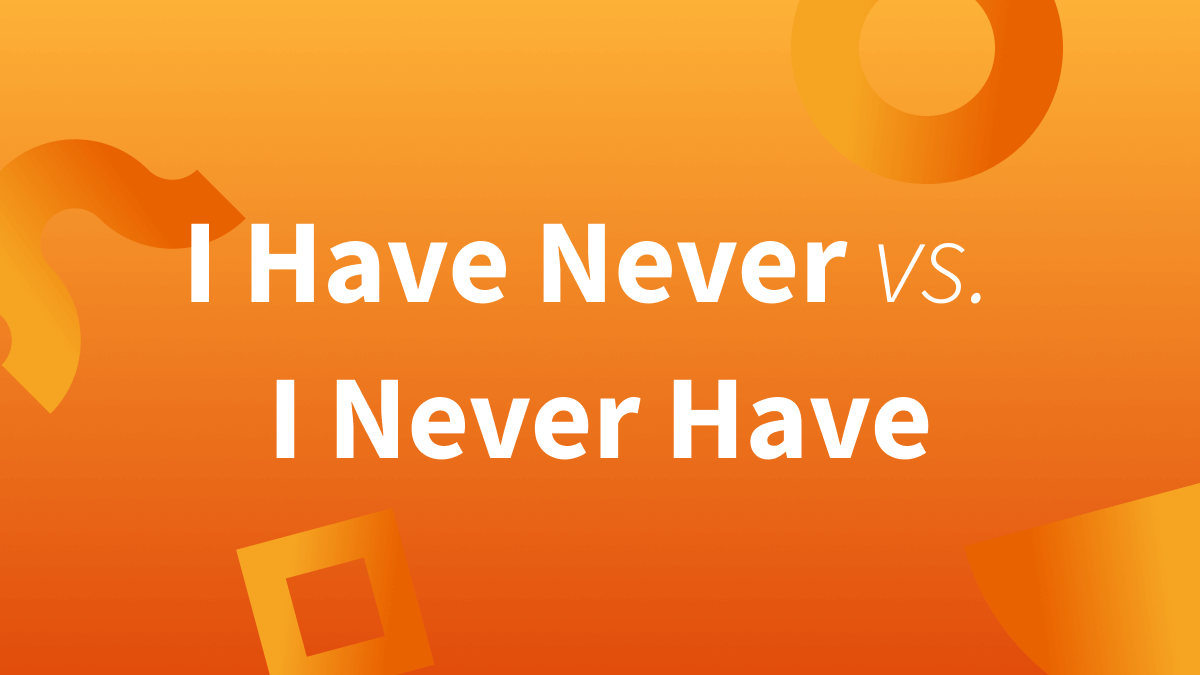Native English speakers prefer I have never instead of I never have.
I Have Never vs. I Never Have
Sometimes, when you’re learning English, proper word order can be a challenge. For example, when it comes to I have never or I never have, do you know which is the preferred phrase?
Native English speakers prefer I have never.
To understand why, we have to briefly review the basic word order English uses: ‘subject + verb + object’ (SVO).
SVO, which is quite rigidly followed in English, is a type of sentence structure in which the subject is first, followed by the verb, and then the object.
The man [subject] threw [verb] a pen [object].
When it comes to the phrases I have never or I never have, ‘auxiliary + adverb’ + verb is the canonical word order.
We [subject] have [auxiliary] never [adverb] disagreed [verb].
However, you should know that ‘adverb + auxiliary + verb’ is a stylistic choice used to emphasize or call attention to the meaning of the adverb.
Consider the following examples:
I have never cheated on a test.
I never have cheated on a test.
It’s not to say that I never have is incorrect, it’s just not the standard word order. It’s only used to accentuate the adverb.
LanguageTool—an intelligent writing assistant that supports over 30 languages—can help improve your writing by correcting the use of nonstandard phrases and fixing various types of grammar errors. Try it out—it’s free!


